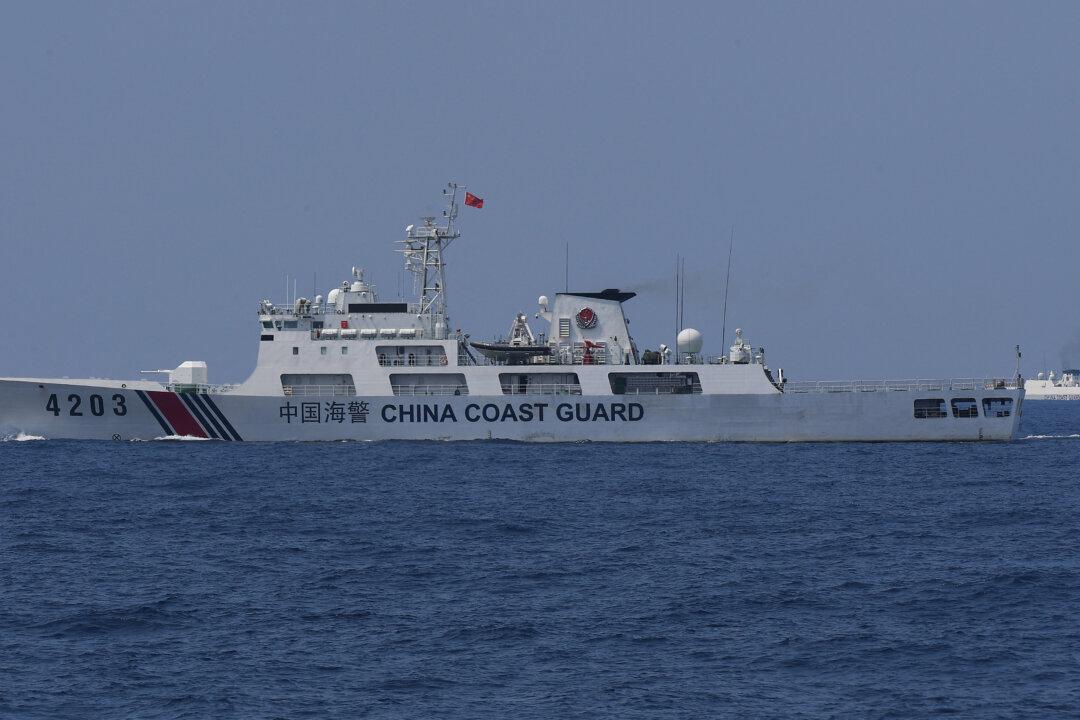Taiwan is at risk of ceding some of its autonomy to communist China if Beijing decides to inflict severe economic pain on the island via a “gray-zone” quarantine, according to experts from a Washington-based think tank.
China Could Quarantine Taiwan With Coast Guard to Undermine Island’s Sovereignty: Report
‘We need to think about designating the Chinese Coast Guard as part of the Chinese People’s Liberation Army,’ says report author, Bonny Lin.

China Coast Guard ships monitor the distribution of fuel and food to fishers by the civilian-led mission Atin Ito (This Is Ours) Coalition, in the disputed South China Sea on May 16, 2024. Ted Aljibe/AFP via Getty Images





